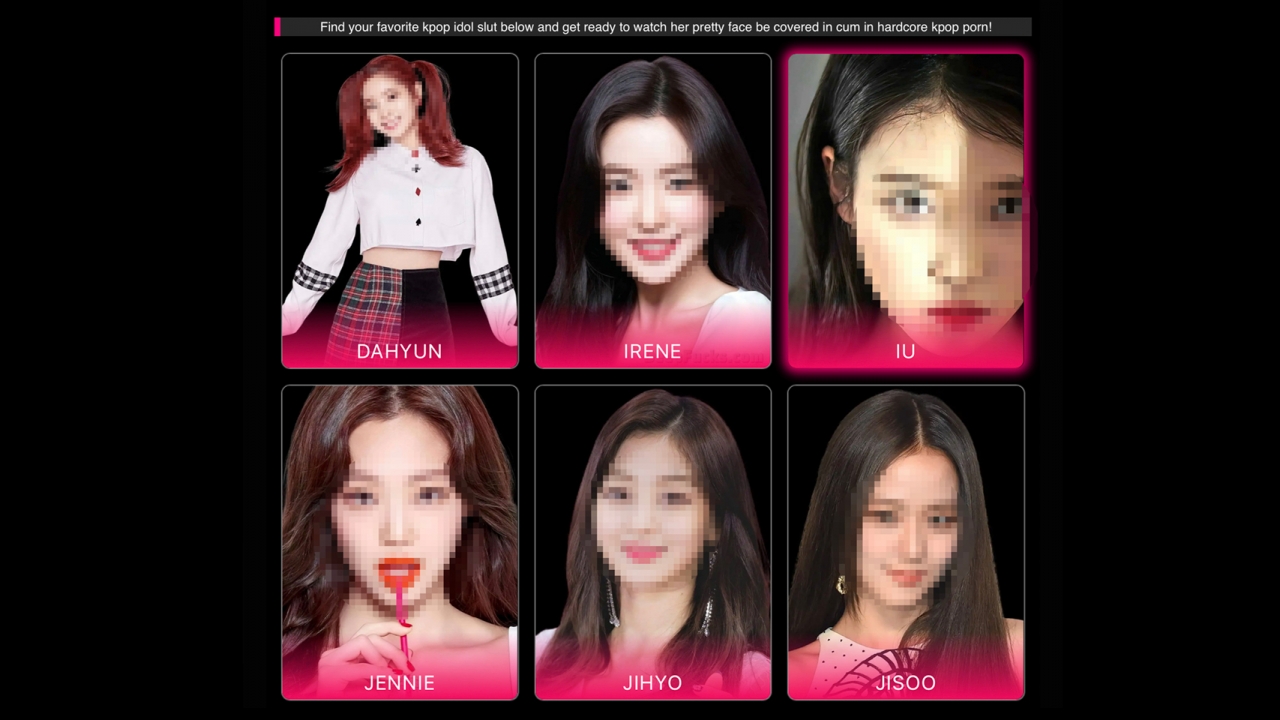Unveiling The K-Pop Deepfake Revolution: Ethical Dilemmas, Industry Trends, And Societal Impact
The digital landscape continues to evolve at an unprecedented pace, introducing groundbreaking technologies that reshape how we consume and interact with media. Among the most controversial yet fascinating phenomena is the rise of deepfakes in the K-pop industry. These creators often share their work on platforms like kpopdeepfakescom, gaining recognition within the community for their skillful manipulations. The digital realm has been buzzing with a controversial trend that has captivated both fans and critics alike. From altering recordings to crafting entirely new content, this technology is redefining the boundaries of creativity and raising ethical concerns. Ruma was having lunch on a summer day in 2021 when her phone began blowing up with notifications. When she opened the messages, they were devastating. The incident highlighted the darker side of deepfake technology, sparking debates about its implications for artists, fans, and society as a whole.
This evolving technology presents a complex interplay of creative possibilities and ethical concerns. Instead of deepfakes that superimpose the faces of idols onto the bodies of other people, these edited videos are created out of still pictures. The unregulated creation of illegal synthesized photos and videos has led to special crackdowns on deepfake sexual crimes, and the music industry has taken notice. On September 30th, JYP Entertainment, the agency of TWICE and ITZY, issued a statement condemning the misuse of such technologies. Meanwhile, the international Miss Korea 2024 pageant, held on September 24, faced heated controversy over an inappropriate question related to deepfakes. The organizers issued a public apology, acknowledging their fault in mishandling the situation. The accessibility and increasing sophistication of these technologies contribute directly to trends observed on platforms dedicated to such content, making it imperative to address the ethical and societal implications.
| Personal Information | Details |
|---|---|
| Name | Ruma |
| Occupation | Content Creator |
| Notable Works | Deepfake Content for K-pop Fans |
| Agency | Independent Creator |
| Professional Recognition | Recognition on kpopdeepfakescom |
| Impact | Contributor to Deepfake Discussions in K-pop |
| Reference | kpopdeepfakes.com |
The rise of deepfakes in K-pop is not merely a technological advancement but a cultural phenomenon that reflects broader societal trends. It mirrors the global fascination with artificial intelligence and its potential to transform creative industries. Celebrities like Taylor Swift and BTS have openly discussed the impact of digital manipulation on their public image, drawing parallels to the challenges faced by K-pop idols. The phenomenon has sparked discussions across various platforms, with fans and critics alike debating its ethical implications and potential impact on the industry. As deepfakes become more accessible, they challenge traditional notions of authenticity and ownership in the digital age.
K-pop deepfakes have gained significant attention, especially on platforms like kpopdeepfakescom, where the latest trends and developments are frequently showcased. These manipulations can create entirely new content, or alter existing recordings to feature the artist in different situations or contexts. The accessibility of such technologies has democratized content creation, allowing fans to participate actively in the creative process. However, this democratization comes with risks. The misuse of deepfake technology can lead to the spread of misinformation, harm reputations, and perpetuate harmful stereotypes. As the industry grapples with these challenges, it must also recognize the potential benefits of embracing innovation responsibly.
The international Miss Korea 2024 controversy underscores the broader implications of deepfake technology. When a contestant was asked an inappropriate question related to deepfakes, it highlighted the lack of awareness and preparedness among organizers. The incident sparked outrage, prompting the organizers to issue a public apology. This event serves as a reminder of the need for education and regulation in the digital space. As deepfakes become more prevalent, it is crucial to establish guidelines that protect individuals from exploitation while encouraging responsible innovation. The controversy also shed light on the growing influence of digital media in shaping public perception and societal norms.
- The Thinning Movies Like It Where To Stream Unveiled
- Lesli Margherita Daniel Stafford Facts Marriage More Explained
The intersection of technology and entertainment has long been a subject of fascination and debate. From the early days of film editing to the current era of AI-driven content creation, the evolution of media technology reflects humanity's endless quest for creativity. In the context of K-pop, deepfakes represent a double-edged sword. On one hand, they offer unprecedented opportunities for artists and fans to explore new creative possibilities. On the other hand, they pose significant ethical and legal challenges that require careful consideration. The industry must strike a balance between innovation and accountability, ensuring that technological advancements do not come at the expense of human dignity and rights.
As the debate around deepfakes continues, it is essential to examine the role of stakeholders in shaping the future of this technology. Record labels, content creators, and fans all play a critical role in determining how deepfakes are used and perceived. For instance, JYP Entertainment's condemnation of deepfake misuse demonstrates the importance of corporate responsibility in addressing these issues. Similarly, independent creators like Ruma contribute to the conversation by showcasing the positive potential of deepfakes while acknowledging their limitations. By fostering open dialogue and collaboration, the industry can work towards a future where technology enhances creativity without compromising ethics.
The societal impact of deepfakes extends beyond the entertainment industry, influencing how we perceive truth and reality in the digital age. In an era where information is readily available but not always reliable, the ability to manipulate images and videos raises fundamental questions about trust and authenticity. This is particularly relevant in the context of K-pop, where fans and artists engage in a symbiotic relationship driven by mutual admiration and creativity. As deepfakes become more sophisticated, it becomes increasingly challenging to distinguish between real and fabricated content, blurring the lines between fact and fiction.
Despite the challenges, deepfakes also offer opportunities for positive change. They enable artists to experiment with new forms of expression, engage with diverse audiences, and push the boundaries of traditional media. For instance, some K-pop groups have embraced deepfake technology to create interactive experiences for their fans, enhancing engagement and fostering a sense of community. By leveraging these technologies responsibly, the industry can harness their potential to drive innovation and creativity while minimizing harm.
The future of deepfakes in K-pop depends on how stakeholders choose to navigate the complex landscape of ethics, technology, and culture. As the industry continues to evolve, it must prioritize transparency, accountability, and inclusivity. This involves establishing clear guidelines for the use of deepfake technology, promoting education and awareness, and encouraging collaboration between creators, fans, and industry leaders. By doing so, the K-pop industry can set a precedent for responsible innovation in the digital age, ensuring that technology serves as a tool for empowerment rather than exploitation.
In conclusion, the rise of deepfakes in K-pop reflects broader trends in the digital media landscape. While the technology presents significant challenges, it also offers exciting opportunities for creativity and innovation. By addressing the ethical and societal implications of deepfakes, the industry can harness their potential to enhance the fan experience while safeguarding the rights and dignity of artists. As the conversation around deepfakes continues, it is crucial to remain vigilant, informed, and proactive in shaping the future of this transformative technology.



Detail Author:
- Name : Eulah Witting
- Username : maiya76
- Email : freichert@hotmail.com
- Birthdate : 2002-01-15
- Address : 809 Judd Fork Apt. 139 East Abdullah, NC 72289
- Phone : 1-248-503-9000
- Company : Runolfsson Ltd
- Job : Tractor Operator
- Bio : Aperiam et ullam quia unde. Non eveniet libero dolores nulla. Enim laborum dolorem aut et sunt quis laborum non.
Socials
instagram:
- url : https://instagram.com/mhartmann
- username : mhartmann
- bio : Sed aut culpa quo accusantium aut. Ex ab quaerat perferendis ex dolores et.
- followers : 4424
- following : 1906
twitter:
- url : https://twitter.com/mhartmann
- username : mhartmann
- bio : Qui sapiente exercitationem itaque officia voluptatem dolore. Harum consequatur sint est excepturi. Cupiditate enim quidem quibusdam.
- followers : 6073
- following : 453
facebook:
- url : https://facebook.com/marjory_xx
- username : marjory_xx
- bio : Rerum consequatur ad quia omnis adipisci repellendus non.
- followers : 4000
- following : 111
linkedin:
- url : https://linkedin.com/in/mhartmann
- username : mhartmann
- bio : Sunt voluptatem exercitationem repellat quam.
- followers : 5040
- following : 2492